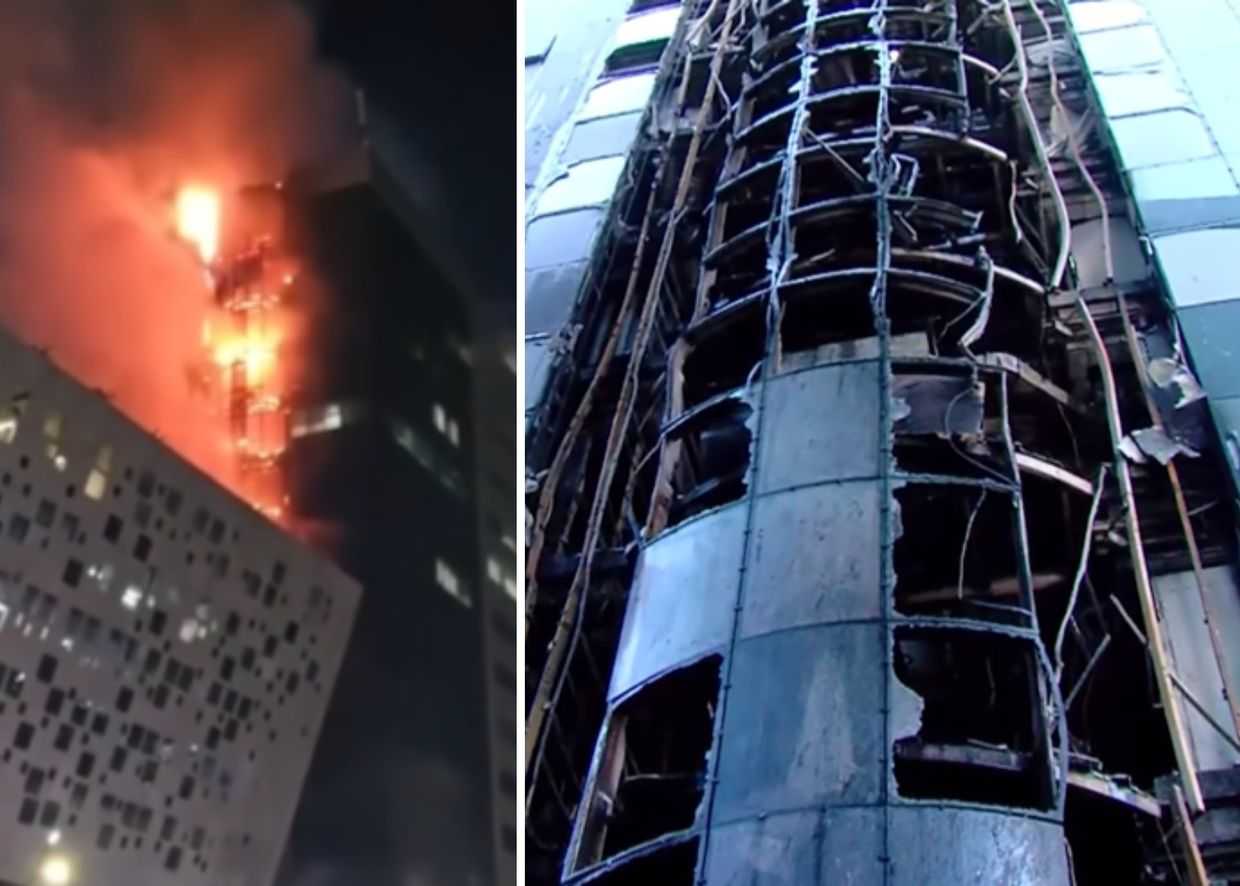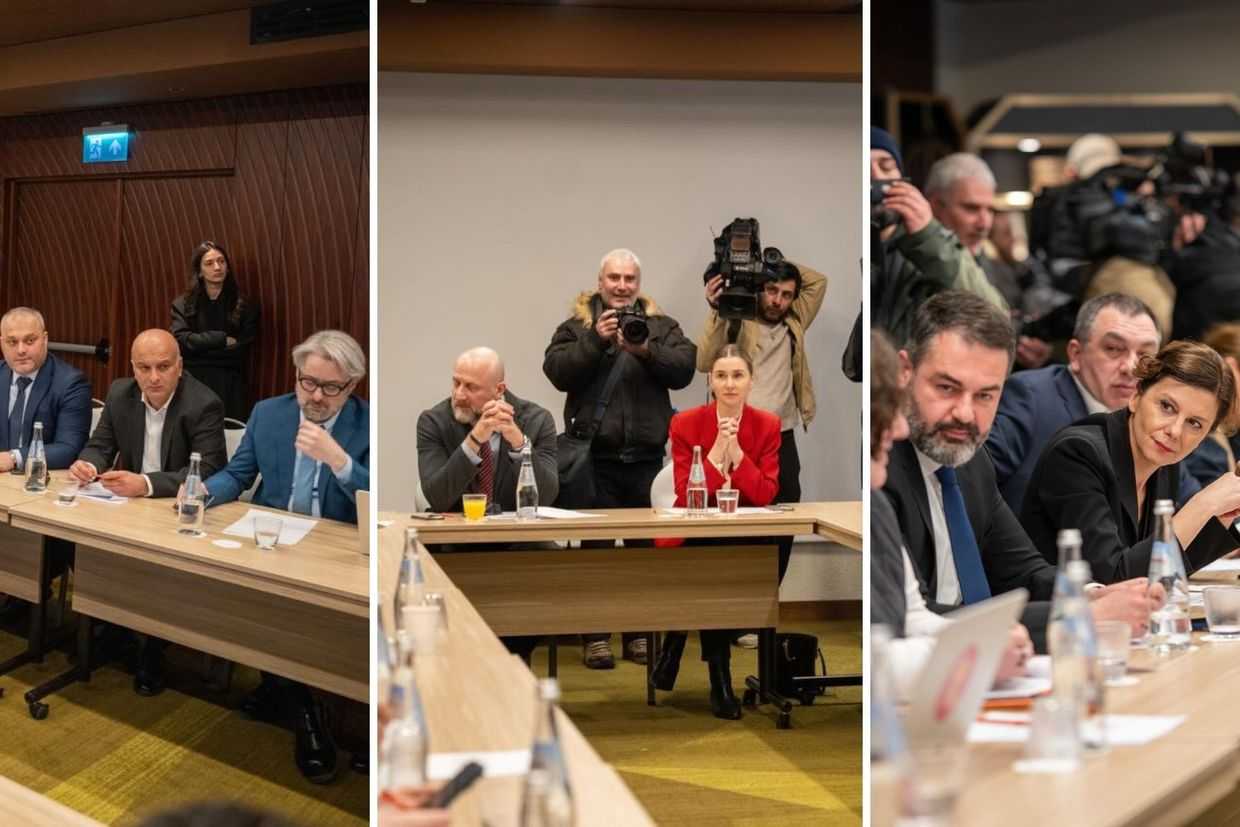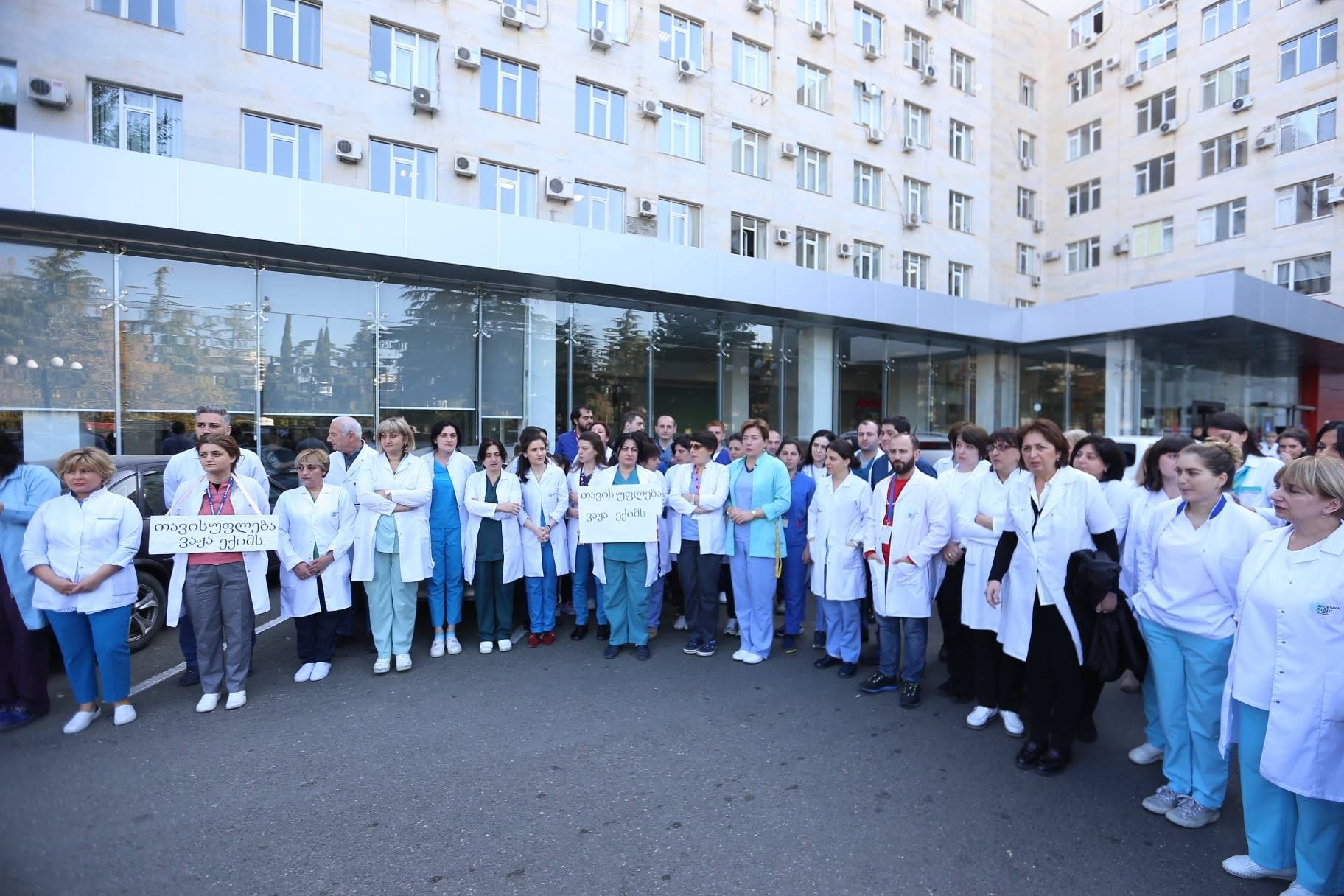
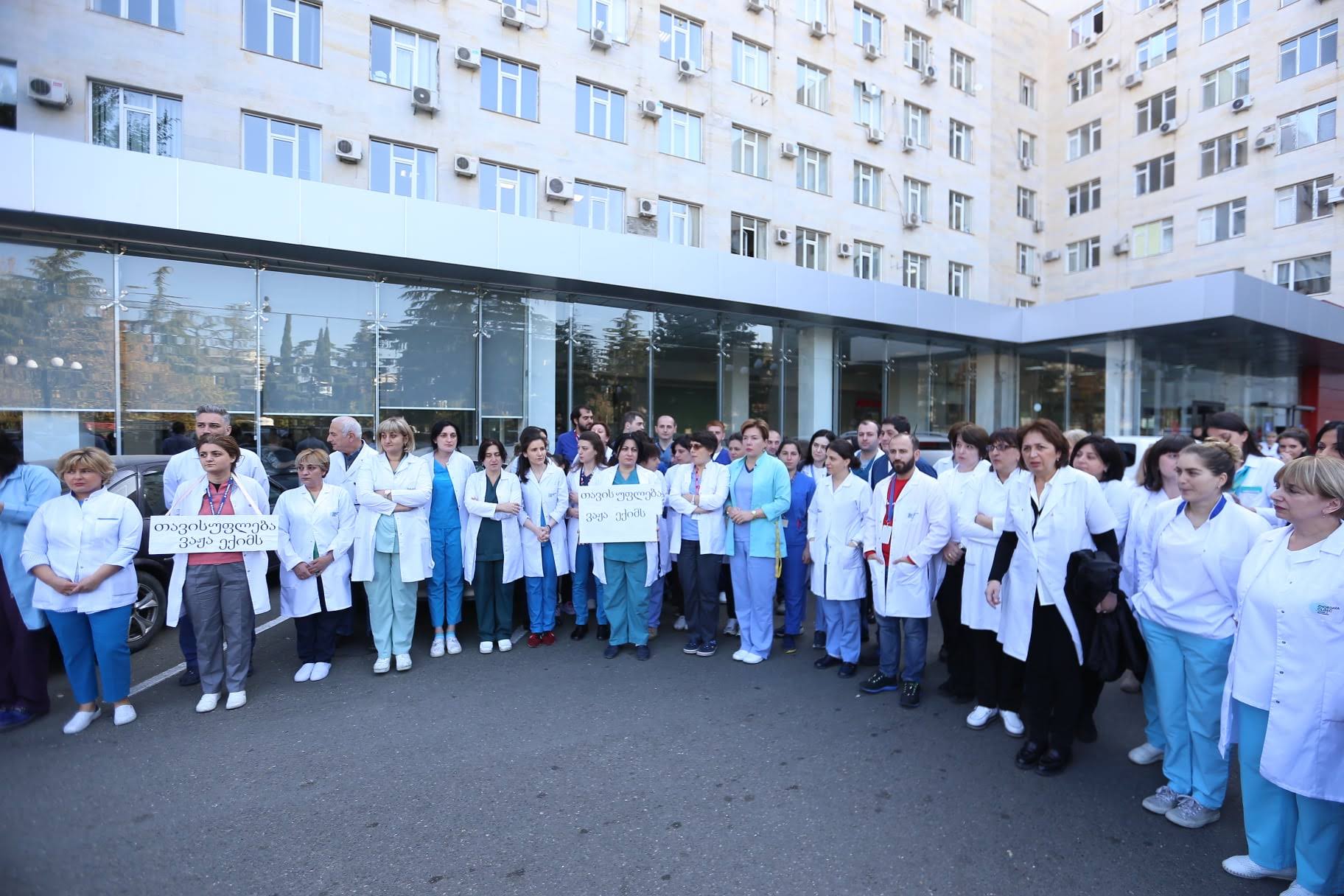
The trial of Georgian doctor Vazha Gaprindashvili for ‘illegal border crossing’ has begun in South Ossetia, over a month after he was detained.
Despite speculation in Georgia of his imminent release, Judge Fatima Parastayeva of the Leningor (Akhalgori) District Court declined to release him and the trial continues.
Gaprindashvili’s lawyer, Davit Asatiani, said his client had refused to recognise the charges against him. He said the court would reconvene next week.
Russian border police detained Gaprindashvili, a 58-year-old orthopaedic surgeon and President of the Georgian Society of Orthopaedia and Traumatology, on 9 November. On 15 November, he was remanded into two months of pre-trial detention.
He was accused of ‘illegal border crossing’ under article 322 of the Russian criminal code, which is punishable by forced labour or imprisonment of up to two years.
South Ossetian authorities say Gaprindashvili was apprehended near the village of Orchosani, in Leningor (Akhalgori) District, after he travelled from the Georgian-controlled village of Sakorintlo.
The South Ossetian security services, the KGB, claimed Gaprindashvili’s ‘violation’ was part of an ‘increased number’ of ‘illegal trespassing of the border’, which they said was ‘connected with’ Georgian authorities constructing a police checkpoint near the village of Tsnelisi (Uista) in South Ossetia.
Georgian security forces erected the checkpoint in a forested buffer zone between Tsnelisi and the Georgian-government controlled village of Chorchana in August, leading to condemnation from the authorities in South Ossetia.
The dispute has complicated security and humanitarian negotiations between the two sides. In late August, South Ossetian authorities announced the construction of their own checkpoint in Tsnelisi.
[Read more on OC Media: South Ossetia orders tit-for-tat checkpoint construction in latest border escalation]
South Ossetian authorities have kept crossing points with Georgia-controlled territory closed since 5 September, announcing they would ease restrictions only recently.
Local and international reactions to the case
The International Committee of the Red Cross (ICRC) was the only agency to visit Gaprindashvili in prison in the South Ossetian capital, Tskhinvali (Tskhinval), facilitating written communication between the doctor and his family.
Gaprindashvili’s daughter, Irina Gaprindashvili, has regularly updated the public with information about his father’s condition in prison, which was described by the parties involved throughout his stay as ‘normal’.
Gaprindashvili’s release was also discussed at the latest Geneva International Discussions on 10-11 December. The format was launched in October 2008 to address the consequences of the conflict. It is co-chaired by the EU, OSCE, and the UN.
On 18 November, 9 days after he was detained, medical professionals in more than six Georgian cities held ‘white coats’ rallies and a five-minute silence in protest over Gaprindashviil’s detention.
[Read more on OC Media: Colleagues campaign for release of Georgian doctor jailed in South Ossetia]
In mid-November, a number of Georgia’s strategic partners, including Estonia, the US, and Britain, called for Gaprindashvili’s release.
We call on the de facto authorities in 🇬🇪’s South Ossetia region to immediately release Georgian physician Dr. Vazha #Gaprindashvili. Estonia fully supports #Georgia‘s sovereignty & territorial integrity in its internationally recognised borders. @MFAgovge @GeoEmbTallinn
— Estonian MFA (@MFAestonia) November 18, 2019
Following local and international reactions, on 19 November the authorities in South Ossetia vowed to deal with the ‘provocative activities’ by Gaprindashvili and ‘his curators’ in a legal manner.
They said they wished to prevent similar incidents and an ‘escalation of tensions’, and to ‘defend South Ossetian sovereignty’.
They also claimed Gaprindashvili was a Georgian Army reserve captain who ‘actively participated’ in the 2008 August War.
Gaprindashvili’s family denied that he served in the military during the war, insisting that at the time he was working in the Ghudushauri hospital in Tbilisi and barely left the clinic.
Gaprindashvili’s colleague, Levan Nachkhebia, claimed that during the war Gaprindashvili treated two wounded Russian military pilots who were captured by Georgia.
On 21 November, the South Ossetian KGB reported that Gaprindashvili’s crossing was ‘well prepared and planned’ and that he had failed to account for the purpose of his visit.
They added that he was a ‘supporter of Georgia’s speedy integration into Nato’ and ‘considered South Ossetia to be a part of Georgia occupied by Russia’.
Uncertain circumstances of his detention
Gaprindashvili’s family started speaking publicly four days after his arrest following reports in South Ossetian media.
The family initially claimed they had no specific information about the purpose of his visit but assumed he was detained while visiting patients living in Akhalgori.
The family refuted claims in several Georgian media outlets that he was visiting patient Tamar Gigauri.
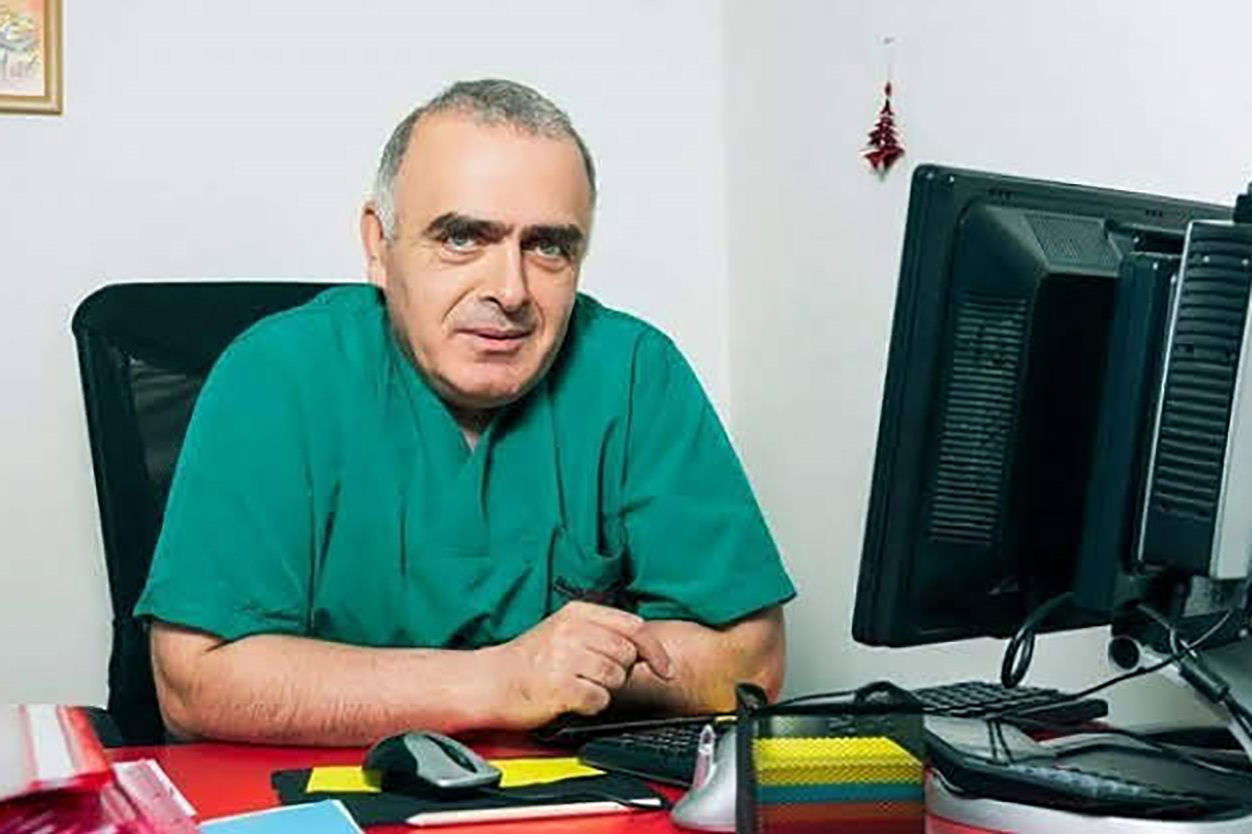
Gigauri was the latest in a series of Akhalgori residents in need of medical treatment prevented by South Ossetian authorities from travelling to Georgian-controlled territory for treatment.
On 18 November, Shota Bidzinashvili, a resident of the Georgian-controlled village of Bershueti, near South Ossetia, told Radio Tavisupleba that he had spent five days in prison in Tskhinvali together with Gaprindashvili.
He cited Bidzinashvili as saying that prisoners were fed only once a day, kept in damp and badly ventilated conditions, and that Gaprindashvili, who looked after him and other inmates, had protested the conditions to prison officials.
Russia’s role
The Georgian Orthodox Church and former parliamentary speaker and opposition politician Nino Burjanadze have both reached out to Russia to lobby for Gaprindashvili’s release.
In an appeal on 17 November to the head of the Russian Orthodox Church, Patriarch Kirill, Georgian Patriarch Ilia II called protests by Georgians over the detention ‘just’.
The main focus of the letter concerned reports of Russia’s intention to send recently graduated priests to military bases in South Ossetia and Abkhazia, something that Ilia II called a violation of the Georgian Church’s ecclesiastical jurisdiction.
After meeting Zurab Abashidze, Georgia’s special representative for relations with Russia, Russian senator Grigory Karasin ‘expressed hope’ on 28 November that Gaprindashvili would meet the New Year with his family.
Following a recent visit to the Kremlin, Burjanadze, who leads the non-parliamentary Democratic Movement — United Georgia Party, told TV channel PalitraNews that she raised the issue of Gaprindashvili during her meetings with Russian officials. She insisted on 9 December that he would ‘100%’ be freed on 13 December.
For ease of reading, we choose not to use qualifiers such as ‘de facto’, ‘unrecognised’, or ‘partially recognised’ when discussing institutions or political positions within Abkhazia, Nagorno-Karabakh, and South Ossetia. This does not imply a position on their status.



